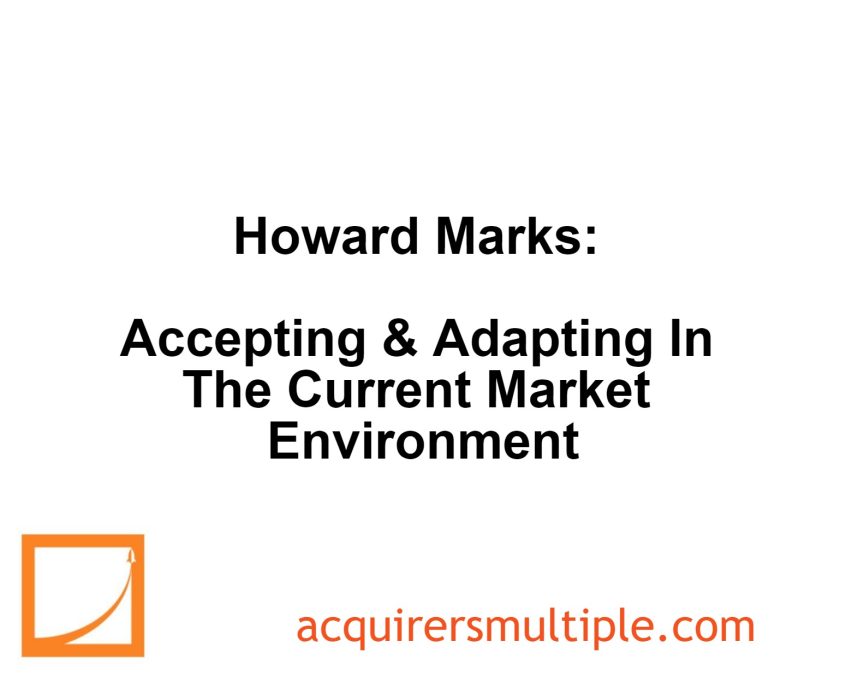Howard Marks emphasizes the importance of understanding and accepting the current investment environment, recognizing that it may not always present clear opportunities. Investors should assess market conditions accurately and act accordingly, avoiding actions based on ignorance or attempts to change the market.
Marks’ investment philosophy is influenced by Japanese concepts, particularly “mujo,” which acknowledges the inevitability of change and the cyclical nature of events.
This philosophy underscores the necessity of adapting to changing circumstances and making informed decisions based on present realities, as past events cannot be altered.
Here’s an excerpt from the book:
At any particular point in time, the investment environment is a given, and we have no alternative other than to accept it and invest within it. There isn’t always a pendulum or cycle extreme to bet against. Sometimes greed and fear, optimism and pessimism, and credulousness and skepticism are balanced, and thus clear mistakes aren’t being made. Rather than obviously overpriced or underpriced, most things may seem roughly fairly priced. In that case, there may not be great bargains to buy or compelling sales to make.
It’s essential for investment success that we recognize the condition of the market and decide on our actions accordingly. The other possibilities are (a) acting without recognizing the market’s status, (b) acting with indifference to its status, and (c) believing we can somehow change its status. These are most unwise. It makes perfect sense that we must invest appropriately for the circumstances with which we’re presented. In fact, nothing else makes sense at all.
I come to this from a philosophic foundation: In the mid-sixties, Wharton students had to have a nonbusiness minor, and I satisfied the requirement by taking five courses in Japanese studies. These surprised me by becoming the highlight of my college career, and later they contributed to my investment philosophy in a major way.
Among the values prized in early Japanese culture was mujo. Mujo was defined classically for me as recognition of “the turning of the wheel of the law,” implying acceptance of the inevitability of change, of rise and fall. In other words, mujo means cycles will rise and fall, things will come and go, and our environment will change in ways beyond our control. Thus, we must recognize, accept, cope, and respond. Isn’t that the essence of investing?
What’s past is past and can’t be undone. It has led to the circumstances we now face. All we can do is recognize our circumstances for what they are and make the best decisions we can, given the givens.
You can find a copy of the book here:
The Most Important Thing – Howard Marks
For all the latest news and podcasts, join our free newsletter here.
Don’t forget to check out our FREE Large Cap 1000 – Stock Screener, here at The Acquirer’s Multiple:



